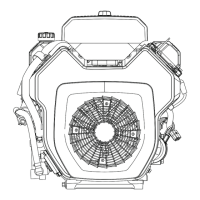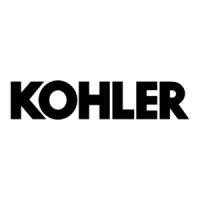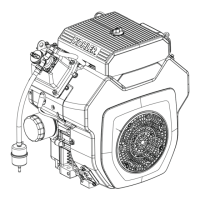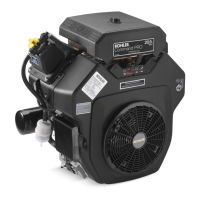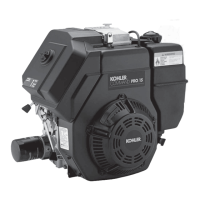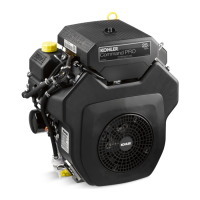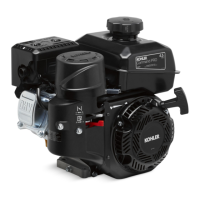Torque Specications-Covers
Gasket/RTV 3.4 N·m (30 in. lb.)
Black O-ring
w/shoulder screws
w/screws and spacers
5.6 N·m (50 in. lb.)
9.9 N·m (88 in. lb.)
Yellow or Brown O-ring
w/integral spacers 6.2 N·m (55 in. lb.)
Install Air Cleaner Assembly
Low-Prole Air Cleaner
NOTE: Route fuel line in contour to avoid restriction.
1. Attach rubber breather hose to breather cover.
Connect fuel inlet line to carburetor and secure with
a clamp.
2. Position a new gasket and air cleaner base while
carefully pulling loose end of rubber breather hose
through base until properly seated (collars sealed
against each side of base).
3. Secure air cleaner base and bracket using screws.
Position bracket with hole toward breather hose. Be
careful not to drop screws into carburetor. If a rear
air cleaner bracket is used, install two M5 screws
through rear of base. Torque three M6 screws to
6.2-7.3 N·m (55-65 in. lb.) and two rear M5 mounting
screws (when applicable) to 4.0 N·m (35 in. lb.).
4. Install breather hose in hole of bracket.
5. Install air cleaner components, refer to Air Cleaner/
Intake.
Heavy-Duty Air Cleaner
1. Connect breather hose to breather cover and tting
on adapter elbow. Route fuel line adjacent to fuel
solenoid, and secure to carburetor inlet with a clamp.
2. Align air cleaner mounting bracket with valve cover
mounting holes and start screws. On two-barrel
carburetor models start two mounting screws into
top of intake manifold.
3. Check alignment of bracket and torque valve cover
screws as prescribed in Install Valve Covers. Torque
upper mounting screws into manifold (two-barrel
models only) to 9.9 N·m (88 in. lb.).
4. Connect air cleaner hose to elbow or adapter on
carburetor and secure with a clamp. Install and
tighten hood onto air cleaner inlet.
Install Mufer
1. Install port liners (if equipped). Install mufer and
attaching hardware to mufer bracket. Torque
screws to 9.9 N·m (88 in. lb.).
2. Install nuts to exhaust studs. Torque nuts to
24.4 N·m (216 in. lb.).
Install Oil Cooler (if equipped)
Oil cooler can now be installed to engine. Two different
styles are used.
1. Depending on style used, reverse removal
procedure from Disassembly.
2. Secure cooler or adapter to oil pan with oil lter
nipple. Torque oil lter nipple to 27 N·m (20 ft. lb.).
Install Oil Filter and Fill Crankcase with Oil
NOTE: Make sure both oil drain plugs are installed and
torqued to specications to prevent oil leakage.
1. Install oil drain plug(s). Torque plug(s) to 13.6 N·m
(10 ft. lb.). If oil drain valve is used, make sure valve
body is closed and cap is on.
2. Place new lter in shallow pan with open end up. Fill
with new oil until oil reaches bottom of threads. Allow
2 minutes for oil to be absorbed by lter material.
3. Apply a thin lm of clean oil to rubber gasket on oil
lter.
4. Refer to instructions on oil lter for proper
installation.
5. Fill crankcase with new oil. Level should be at top of
indicator on dipstick.
6. Reinstall oil ll cap/dipstick and tighten securely.
Connect Spark Plug Leads
Connect leads to spark plugs.
Prepare Engine for Operation
Engine is now completely reassembled. Before starting
or operating engine, be sure to follow these steps.
1. Make sure all hardware is tightened securely.
2. Make sure oil drain plugs, Oil Sentry
™
pressure
switch, and a new oil lter are installed.
3. Adjust carburetor, idle fuel needle, or idle speed
adjusting screw as necessary.
Testing Engine
It is recommended engine be operated on a test stand or
bench prior to installation in piece of equipment.
1. Set engine up on a test stand. Install an oil pressure
gauge. Start engine and check to be certain oil
pressure (20 psi or more) is present. Run engine at
idle for 2-3 minutes, then 5-6 minutes more between
idle and midrange. Adjust carburetor mixture settings
as necessary (as available).
2. Adjust idle speed screw and high-speed stop as
necessary. Make sure maximum engine speed does
not exceed 3750 RPM (no load).
Reassembly
88
24 690 06 Rev. JKohlerEngines.com
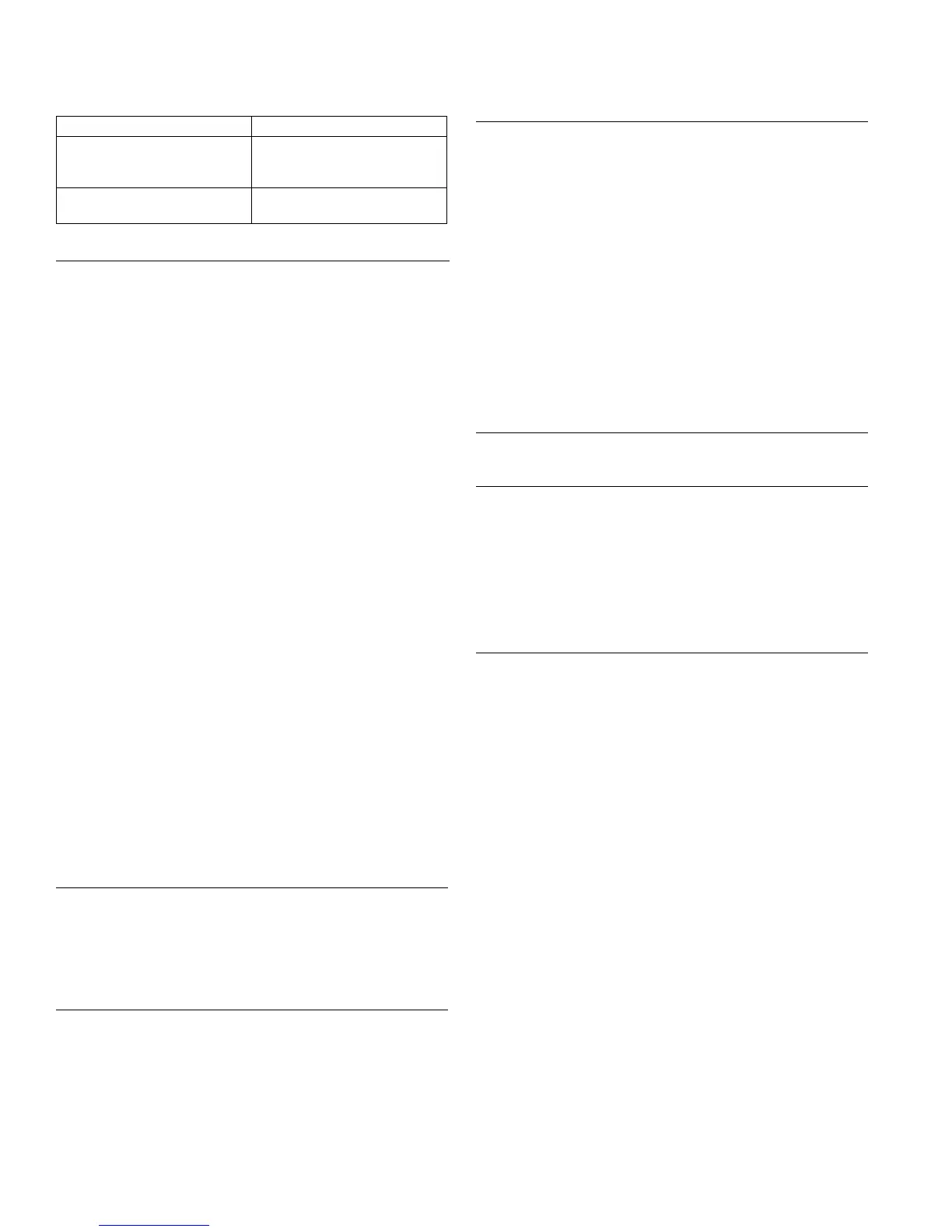